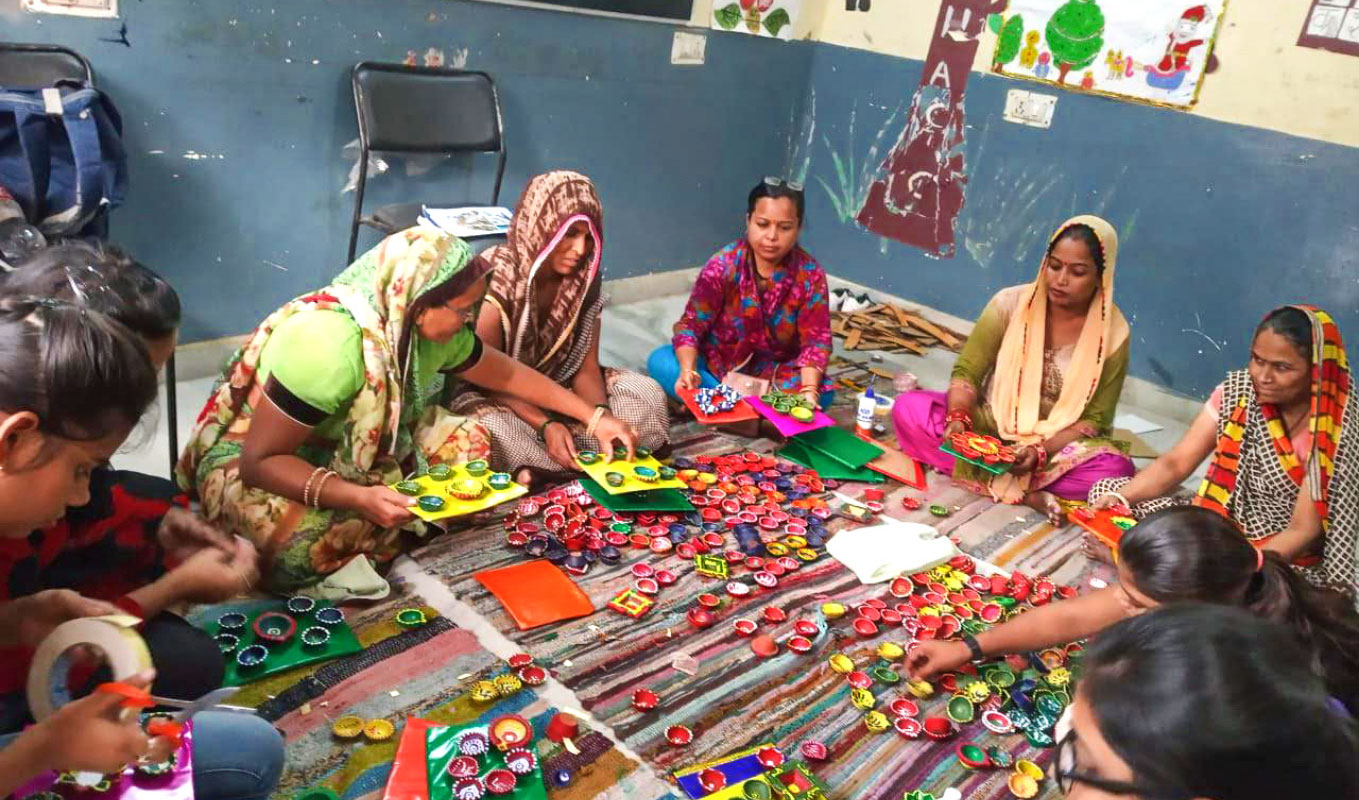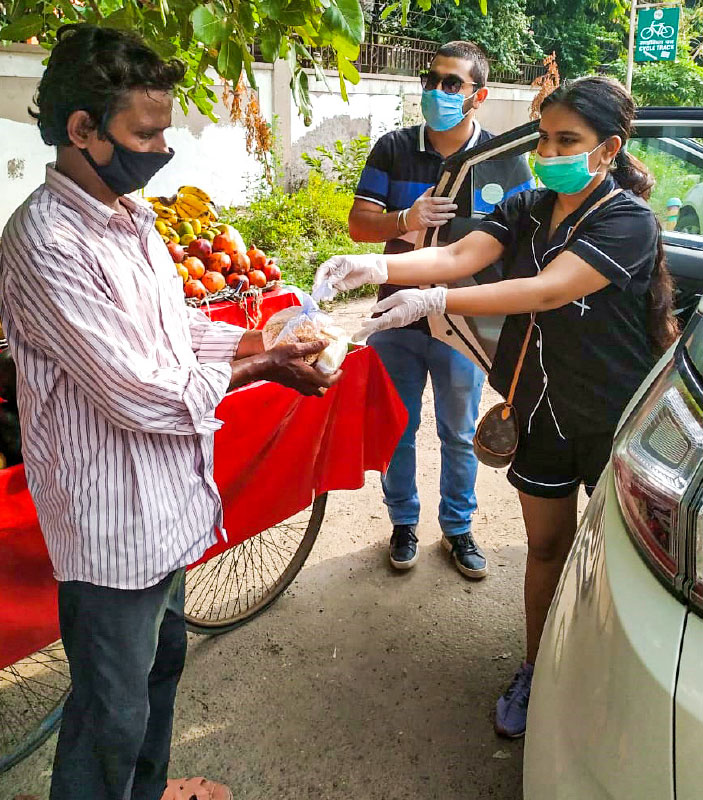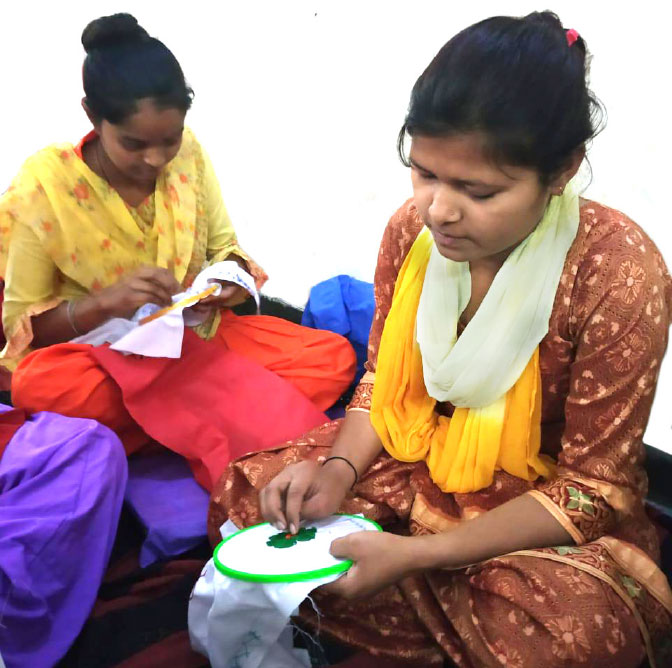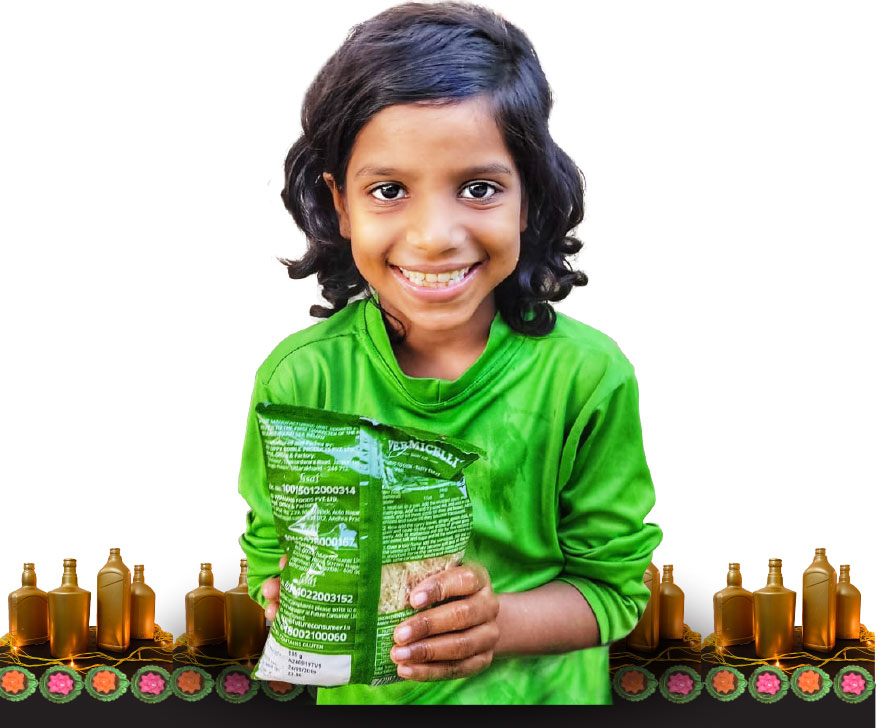RID 3012 Rotaractors inspire creativity
This year RI District 3012, led by DRR Varda Sardana, has designed diverse projects providing wings to imagination while taking care of the well-being of both women and the environment. Rotaract clubs are enthusiastically adopting district projects related to both.
Project Artisans has been devised to improve the livelihood of women. Six Rotaract clubs — Vaishali, Delhi Youngsters, Ashoka Artisans, Dayal Singh College, PGDAV Evening and Delhi Aakash — have collaborated for the project. The Rotaractors identify underprivileged women in their localities and skill them in various handicrafts. “We match the artistic skills and talent of artisans with modern marketing techniques to make these valuable crafts accessible to all,” says Varda.
We used these upcycled articles as mementoes in our district and club events.
These women have been trained to stitch masks and pouches. Some of them were taught bottle-painting, embroidery and also to make diyas. The Rotaractors source the raw material from their known circles. “We approached boutiques and got waste material for making masks and pouches. Our members provided bottles from their homes for painting.”
The initiative was a success and in the three months up to September the district was able to generate ₹10,000. “With Navratri and Diwali around the corner we are getting the women to make diyas and potli bags,” she says, adding that a catalog has been designed and is circulated among friends and families to generate more orders.

The project will help these women present their creations in exhibitions and other marketing channels and the district plans to assist them with ideas so that they can earn better wages. Varda hopes to provide health awareness for them in the coming months. “We are looking for collaborators and contributors for this project to help women grow and be self-sufficient.”
We are looking for collaborators and contributors for this project to help women grow and be self-sufficient.
Project Meraki is about tackling the plastic usage challenge. “Waste isn’t waste, until we waste it. We encourage upcycling plastics in all forms. The idea is to create awareness and discourage use of plastics.” Fifty Rotaract clubs have collaborated in a plastic collection and upcycle drive. Bottles, boxes and caps were collected and given new avatars as pen stands, book marks, flower pots, magnets and showpieces. “We used these upcycled articles as mementoes in our district and club events.” It is an ongoing project and the future plan includes producing eco-bricks using plastic bottles and using them for creating benches, tables and dustbins.

Project Hope was executed for the first 20 days of the year. It encouraged Rotaractors to undertake deeds of kindness to help all living beings around them. “The year 2020 has seen a lot of calamities. People have lost so much in terms of lives, property and livelihood. Through Project Hope we want to instill positivity and optimism among people,” says Varda.
The project saw participation of 35 Rotaract clubs from RID 3012 and 50 clubs from across the country and abroad. “We reached out to approximately 10,000 people and 800 animals in various ways,” says the DRR.


Activities ranged from providing drinking water to security guards, vendors, sanitation workers, birds and animals, to teaching underprivileged children through online platforms; educating people about coronavirus; distributing face masks and other protective gear, food, clothes and stationery, sanitisers and gloves; visiting orphanages and old age homes and cheering the inmates and planting saplings.
In September, the district added another new project — Project Aayina — to impart sexual awareness and the need for menstrual hygiene in adolescent children. “We have designed a curriculum and are conducting sessions for our Interactors. Once schools reopen we will organise programmes both there and also for the slum children,” says Varda, who is an assistant professor in Sriram College, Delhi, with six years of Rotaract experience.

